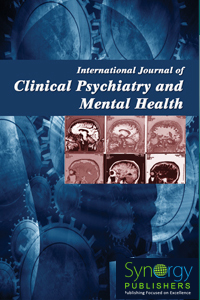
The Global COVID-19 Pandemic Quarantining Effect on Mental Health, Sleeping Quality and Life-Style (Pages 31-39)
Abdulbari Bener1,2,3, Erol Yildirim4, Cem Cahit Barışık5 and Türker Demirtakan6
1Dept. of Biostatistics & Medical Informatics, Cerrahpaşa Faculty of Medicine, Istanbul University-Cerrahpaşa, Istanbul, Turkey; 2Dept. of Evidence for Population Health Unit, School of Epidemiology and Health Sciences, The university of Manchester, Manchester, UK; 3Dept. of Public Health, Medipol International School of Medicine, Istanbul Medipol University, Istanbul, Turkey; 4Dept. of Psychology, School of Humanities and Society Sciences, Istanbul Medipol University, Istanbul, Turkey; 5Dept. of Radiology, Medipol International School of Medicine, Istanbul Medipol University, Istanbul, Turkey; 6Dept. of Accidents and Emergency, Cerrahpaşa Faculty of Medicine, Istanbul University-Cerrahpaşa, Istanbul, Turkey
https://doi.org/10.12970/2310-8231.2021.09.06
Download PDFAbstract: Background: The COVID-19 pandemic is a major public health problem and uncontrollable crisis that has affected the life of billions of peoples globally.
Aim: The aim of this study was to investigate impact of COVID-19 on the prevalence of depression, anxiety, stress, sleeping symptoms and to identify associated risk factors during quarantining in Turkey.
Materials and Methods: This is a cross-sectional survey multi-stage, stratified random sampling based on total of 4,361 participants (80.5%) gave consent male and female and aged 20-65 years in Turkey who completed the 21-item Depression, Anxiety, Stress Scale (DASS-21), Patient Health Questionnaire (PHQ-9) and Pittsburgh Sleep Quality Index (PSQI). The data were analyzed using descriptive and multiple regression analyses.
Results: There were significant differences between males and females with respect to age groups, occupation, income, residence, number of rooms and family members (p<0.001). Using PHQ-9 tools for depression symptom appeared statistically highly significant differences between normal and high severity PHQ-9 ≥ 10 scores regarding age group, gender, educational level, occupational status, co-morbidity, smoking cigarette, lockdown measures and taking COVID-19 test. The findings showed that the prevalence of depression (p<0.001), anxiety (p=0.034), and stress (p=0.019) were significantly higher among the females than males gender. Multiple regression analysis revealed that afraid travel due to COVID-19, educational level, income, taken COVID-19 test and sleeping problem were predictor for depression. Meanwhile, physical distance prevents against COVID-19, feeling fatigue and educational level considered determinant factors for anxiety. Further, mask prevent COVID-19, afraid use public transportation, physical distance, educational level and sleep problem were considered determinant and associated with stress. Finally occupational status, physical activity, feeling fatigue and sleeping problem were considered as the main risk factors associated with patient health after adjusting for age and gender.
Conclusion: This study revealed that more or less one-third of the population have psychological symptoms depression, anxiety and stress during the COVID-19 outbreak. Especially, young females suffer more from depression, anxiety, stress and sleeping problems.
Keywords: Epidemiology, COVID-19, quarantining, sleep quality, mental health, lifestyle.
Read more

